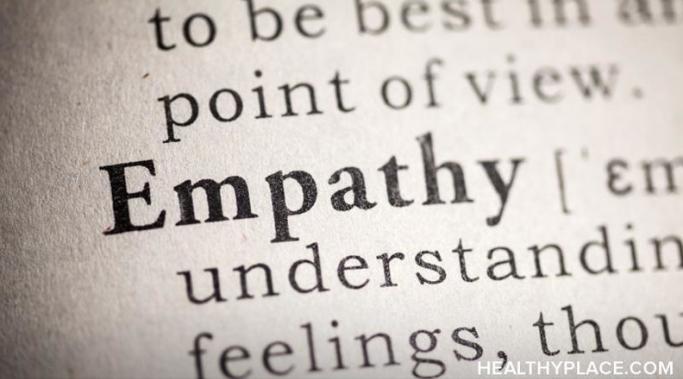A get questions from all sorts of family members and friends of people with mental illnesses and, luckily, many of these people want to help. The trouble is people feel intimidated by a diagnosis of mental illness. They don’t even know where to start to help. This is completely normal. A probable lifetime diagnosis is enough to make anyone feel powerless.
But you are not powerless. If you love someone with a mental illness, there are many things you can do to help.
How Others See Bipolar
It’s devastating to get a diagnosis of bipolar disorder or another mental illness. It means many things to many people, but I know for me, it meant a lifetime condition and a lifetime of treatment. It honestly felt like a death sentence.
But a bipolar diagnosis doesn’t just affect the person with bipolar disorder. A bipolar diagnosis can affect their family and friends, especially if the person with bipolar disorder is younger. It’s completely understandable for a parent to wonder if bipolar disorder is a death sentence. It’s completely understandable for a parent to wonder if his or her child is going to be okay.
Recently I was contacted by someone who was unfortunately going through a divorce. He felt that his spouse left him because he was bipolar. He asked me the question that so many people with a mental illness have asked themselves: I’m bipolar – will anyone ever love me?
Well, I can’t tell the future, but I do know a few things about love.
A while back I wrote on a campaign that was working to change the face of mental illness. It presented real, live people with mental illness that challenged the assumptions that people might have about mental illness. Namely that we’re all unemployed, unsuccessful, useless crazy people.
Now, I did have some problems with the campaign but I applauded their attempt to get people to realize that mental illness is about real people and that each person with a mental illness is an individual with all the possibilities of any other individual in our society.
And I found myself putting my own face on mental illness, bipolar disorder, just the other day. I did it by using the phrase, “. . . people with bipolar, just like me.”
I get asked about the sex life of the bipolar on a regular basis. People want to know what’s “normal” or can they have that mythical “normal” sex life. Some of these people are partners of people with bipolar and others are the people with bipolar themselves. It seems we’re all a bit mystified as to how this mental illness affects our sex lives.
Well, I can’t say what is normal for you, but I can tell you what I know about bipolar and sex.
Last time, I wrote about the terrors of getting on new bipolar medication. Many people identified with this, including one commenter who said:
Sounds all too familiar. I’ve been drug free for several years and seriously doubt that I will ever put myself through that trial and error program again . . . at least for me, that relief is not to be found at the bottom of an orange vial with a childproof cap. I hope you find something to relieve the pain. I also hope you consider the notion that you’re likely stronger and more resourceful than you think you are.
Now, I’m not calling out this commenter for doing anything wrong. I have no problem with his comment, nor with him. However, I find this comment insulting. Not because the commenter meant it to be, but because it suggests that people who don’t take medication for bipolar disorder are “stronger and more resourceful” than those who do.
After reading my last post, Starting Conversations About Bipolar Disorder (When You Don’t Have Bipolar), a commenter requested a similar piece on how to start conversations on mental illness when you do have bipolar disorder. I thought this was a good question as it’s as hard for people with a mental illness to bring up this tough subject as it is for those around us. After all, we don’t want to frighten people or get into major emotional upset.
So are there things to consider when bringing up bipolar disorder with people who don’t have a mental illness?
Mental illness is a daunting subject matter for anyone. Thinking of how to approach a conversation about bipolar disorder would scare the pants off of the most politically correct of animals.
And yet conversations about mental illness must be had if we are to propagate understanding among those with a mental illness and among those who don’t. And it’s brave of someone, anyone, to want to start the conversation about bipolar disorder or another mental illness, knowing how much stigma is out there.
But is there a “right” way to handle talking about mental illness?
In one year I write over 100 blog articles for Breaking Bipolar. I’m honoured to say that many people have responded to this writing and it has spawned many great conversations. Popular topics this year ranged from self-harm to passing down of bipolar to your kids to the understanding of mental illness.
Check out these popular articles you might have missed.
As happens from time to time, I recently received feedback from someone who was not a fan. Anonymous's remarks included:
…The way you go about it, you’d suggest that anyone with bipolar or any kind of mental illness shouldn’t lead a full life.
Let me be clear. You can lead a full life. Anyone can. What I recommend is calibrating your definition of “full” to allow for a mental illness.

![MP900178828[1]](/sites/default/files/styles/blog_listing/public/uploads/2013/03/MP9001788281.jpg?itok=xe_PjdU_)



![MP900178847[1]](/sites/default/files/styles/blog_listing/public/uploads/2013/01/MP9001788471.jpg?itok=Ts8tL5qv)

![MP900386298[1]](/sites/default/files/styles/blog_listing/public/uploads/2013/01/MP9003862981.jpg?itok=1g5eE5XN)
![MP910218832[1]](/sites/default/files/styles/blog_listing/public/uploads/2013/01/MP9102188321-1024x684.jpg?itok=DRi_Ifa_)
